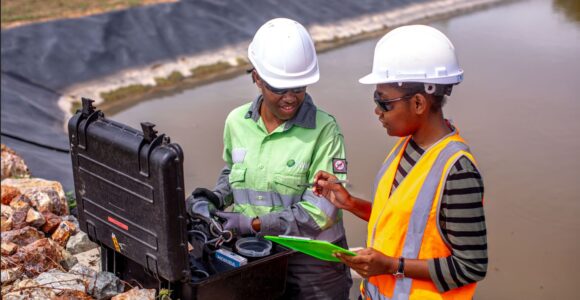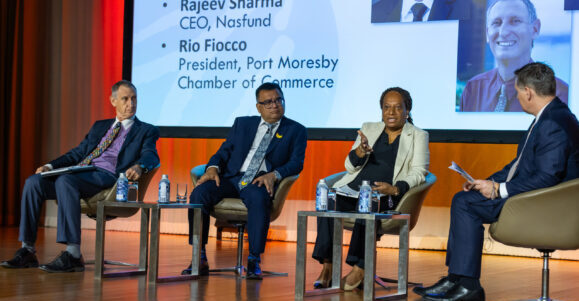Wanting to do business in Papua New Guinea? Come for the long-term, says Australian Trade Commissioner
Australian businesses eager to earn a dollar in Papua New Guinea should understand they need to be seen as committed long-term to the market to be successful, says Australia’s Senior Trade Commissioner to PNG, David Knapton.

Austrade’s David Knapton
‘In a place like PNG, you shouldn’t just dash in, grab the first person you see and say, “I want to work with you”,’ Knapton told prospective investors at the 2015 PNG Advantage Summit in Brisbane.
He said that, while there are a significant number of trade and investment opportunities in PNG, companies should not rush in.
‘One of the key pieces of advice we give to business is to find the right partners and take the time to develop strong relationships.
‘When I say partners, I’m not just referring to joint venture partners. I’m talking in the broadest possible terms. The partner could be an agent, a distributor or even the final end user of the product or service.
Managing risk
‘In a market like PNG, it’s also about managing risks. Companies should take their time, visit the market regularly and commit to it. Treat it as a long term exercise.
‘For companies that come to PNG and say, ‘things have slowed in Australia so I’d like to come in now, find opportunities and get some quick wins before things start to pick up again at home’, we have to tell them that this normally won’t work in a market like PNG. All they risk doing is hurting themselves in the long term.’
He said, if PNG businesses don’t believe that Australian companies are genuinely committed to the market, their chances of success are likely to be limited.
Because of Australia’s extensive experience in developing infrastructure (often in harsh environments) and the need for PNG to maintain and upgrade its ageing infrastructure, Knapton believes that opportunities exist for Australian businesses in many areas. These include roads, ports, airports, power, water, telecommunications and the environment as well as associated education and training needs.
When asked about opportunities in the building and construction sectors, where a number of Asian companies are now operating, Knapton said: ‘It generally comes down to the customer and what they’re looking for’.
‘For most building projects, we find that Australian and NZ standards are the ones most commonly specified. But resource constraints mean that PNG often lacks the ability to enforce compliance’.






